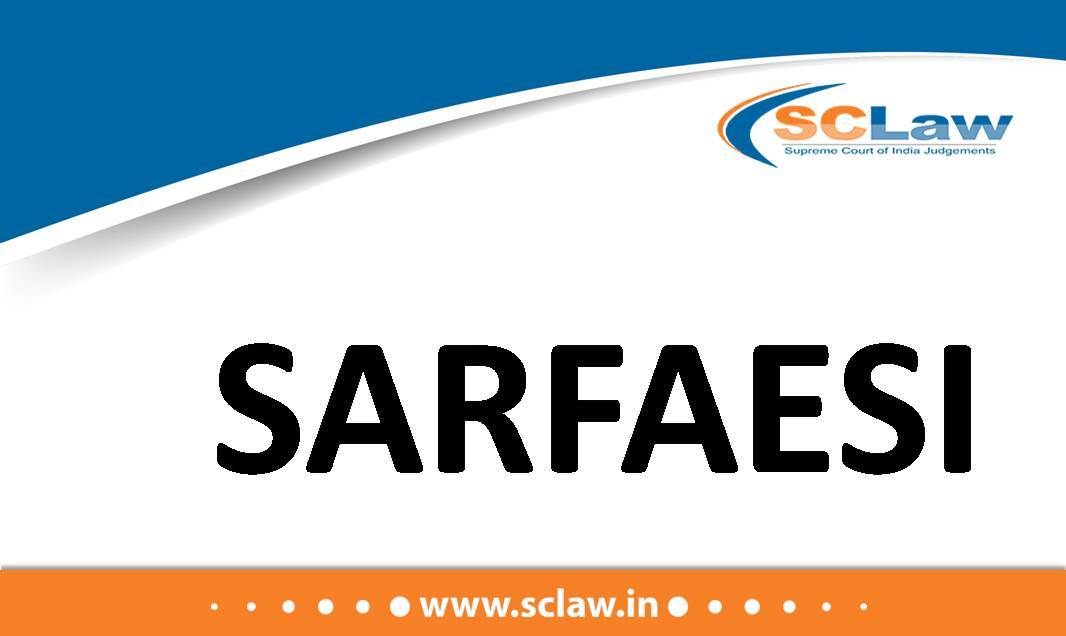HELD as the responsibility of loading and unloading of foodgrains from railway wagons is absent in the present contract. For this reason, the Corporation in the present contract has chosen not to include the power to recover demurrages and as such the expression “charges” cannot be interpreted to include demurrages.
SUPREME COURT OF INDIA DIVISION BENCH FOOD CORPORATION OF INDIA AND OTHERS — Appellant Vs. ABHIJIT PAUL — Respondent ( Before : A.S. Bopanna and Pamidighantam Sri Narasimha, JJ. )…
HELD per Section 54 of the Transfer of Property Act the seller was bound to disclose any buyer any material defect in the property of which the buyer is not aware and which the buyer could not ordinarily discover. Under the circumstances also the submission on behalf of the Bank that the property was put to auction on “as is where is” and “as is what is” condition, thereafter the plaintiff shall not be entitled to compensation of the less area cannot be accepted.
SUPREME COURT OF INDIA DIVISION BENCH MRS. LEELAMMA MATHEW — Appellant Vs. M/S INDIAN OVERSEAS BANK AND OTHERS — Respondent ( Before : M.R. Shah and Krishna Murari, JJ. )…
HELD High Court has not taken into consideration the relevant aspects which are required to be kept in mind while considering the bail application, namely, seriousness of the offence alleged – Remitted
COURT OF INDIA DIVISION BENCH AMY MEHTA — Appellant Vs. STATE OF KARNATAKA AND ANOTHER — Respondent ( Before : M.R. Shah and Hima Kohli, JJ. ) Criminal Appeal No.…
HELD thereby the original land owners/claimants shall not be entitled to any statutory benefits including the interest payable under the Land Acquisition Act, 1894 on the enhanced amount of compensation for the period between 15.12.1993 till the respective first appeals after curing the defects were filed.
SUPREME COURT OF INDIA DIVISION BENCH NEW OKHLA INDUSTRIAL DEVELOPMENT AUTHORITY — Appellant Vs. RAMESHWAR @ RAMESH CHANDRA SHARMA (DEAD) THROUGH LEGAL HEIR AND ANOTHER — Respondent ( Before :…
HELD articles/goods which are manufactured by the assessee, namely, polyurethane foam is an article classifiable in the Eleventh Schedule (entry 25), considering Section 80- IB(2)(iii), the assessee shall not be entitled to the benefit under Section 80-IB of the IT Act.
SUPREME COURT OF INDIA DIVISION BENCH M/S POLYFLEX (INDIA) PVT. LTD. — Appellant Vs. THE COMMISSIONER OF INCOME TAX AND ANOTHER — Respondent ( Before : M.R. Shah and M.M.…
Cheque Dishonour – Company – By virtue of the office they hold as Managing Director or Joint Managing Director, these persons are in charge of and responsible for the conduct of business of the company. HELD Merely being a director of a company is not sufficient to make the person liable under Section 141 of the Act. A director in a company cannot be deemed to be in charge of and responsible to the company for conduct of its business
SUPREME COURT OF INDIA DIVISION BENCH PAWAN KUMAR GOEL — Appellant Vs. STATE OF U.P. AND ANOTHER — Respondent ( Before : Krishna Murari and Bela M. Trivedi, JJ. )…
Kathua Gang Rape and Murder Case – – Respondent accused was not a juvenile at the time of commission of the offence and should be tried the way other co-accused were tried – Impugned order passed by Chief Judicial Magistrate and the High Court which held that one of the accused was a juvenile is set aside – Appeal allowed.
SUPREME COURT OF INDIA DIVISION BENCH THE STATE OF JAMMU AND KASHMIR (NOW U.T. OF JAMMU AND KASHMIR) AND OTHERS — Appellant Vs. SHUBAM SANGRA — Respondent ( Before :…
Motor Accident – – Even in cases of permanent disablement incurred as a result of a motor-accident, the claimant can seek, apart from compensation for future loss of income, amounts for future prospects as well- From the world of the able bodied, the victim is thrust into the world of the disabled, itself most discomfiting and unsettling – If courts nit-pick and award niggardly amounts oblivious of these circumstances, there is resultant affront to the injured victim.
SUPREME COURT OF INDIA DIVISION BENCH SIDRAM — Appellant Vs. THE DIVISIONAL MANAGER, UNITED INDIA INSURANCE CO. LTD. AND ANOTHER — Respondent ( Before : Surya Kant and J.B. Pardiwala,…
(SARFAESI) – Section 13(2) – Proceedings under Section 13(2) SARFAESI Act – mere typographical error due to inadvertence which has not caused any prejudice to the borrowers, that in itself could not be considered to be the ground to annul the process held by the secured creditor which is in due compliance with the requirement as contemplated under the provisions of Security Interest (Enforcement) Rules, 2002.
SUPREME COURT OF INDIA DIVISION BENCH VARIMADUGU OBI REDDY — Appellant Vs. B. SREENIVASULU AND OTHERS — Respondent ( Before : Ajay Rastogi and C.T. Ravikumar, JJ. ) Civil Appeal…
HELD there were several Inverters having numbers which were common/duplicate and interchangeably used in the same or other blocks. It was alleged that for about 186 Invertors serial numbers were commonly, duplicably and interchangeably used. Some of the inverter numbers were not legible. Therefore, it was alleged that there was lack of due diligence by the authorised personnel of the CEIG. Appeal dismissed
SUPREME COURT OF INDIA DIVISION BENCH M.P. POWER MANAGEMENT COMPANY LIMITED, JABALPUR — Appellant Vs. M/S. SKY POWER SOUTHEAST SOLAR INDIA PRIVATE LIMITED AND OTHERS — Respondent ( Before :…













